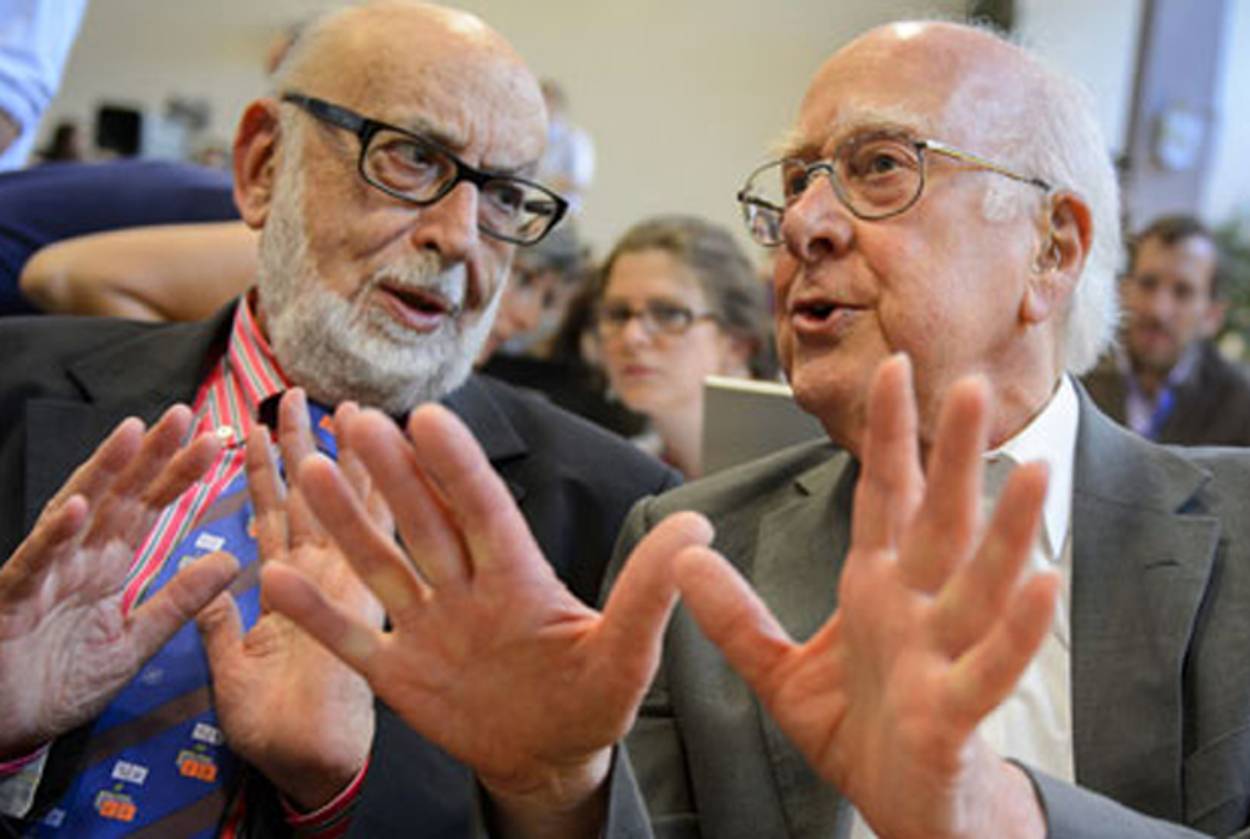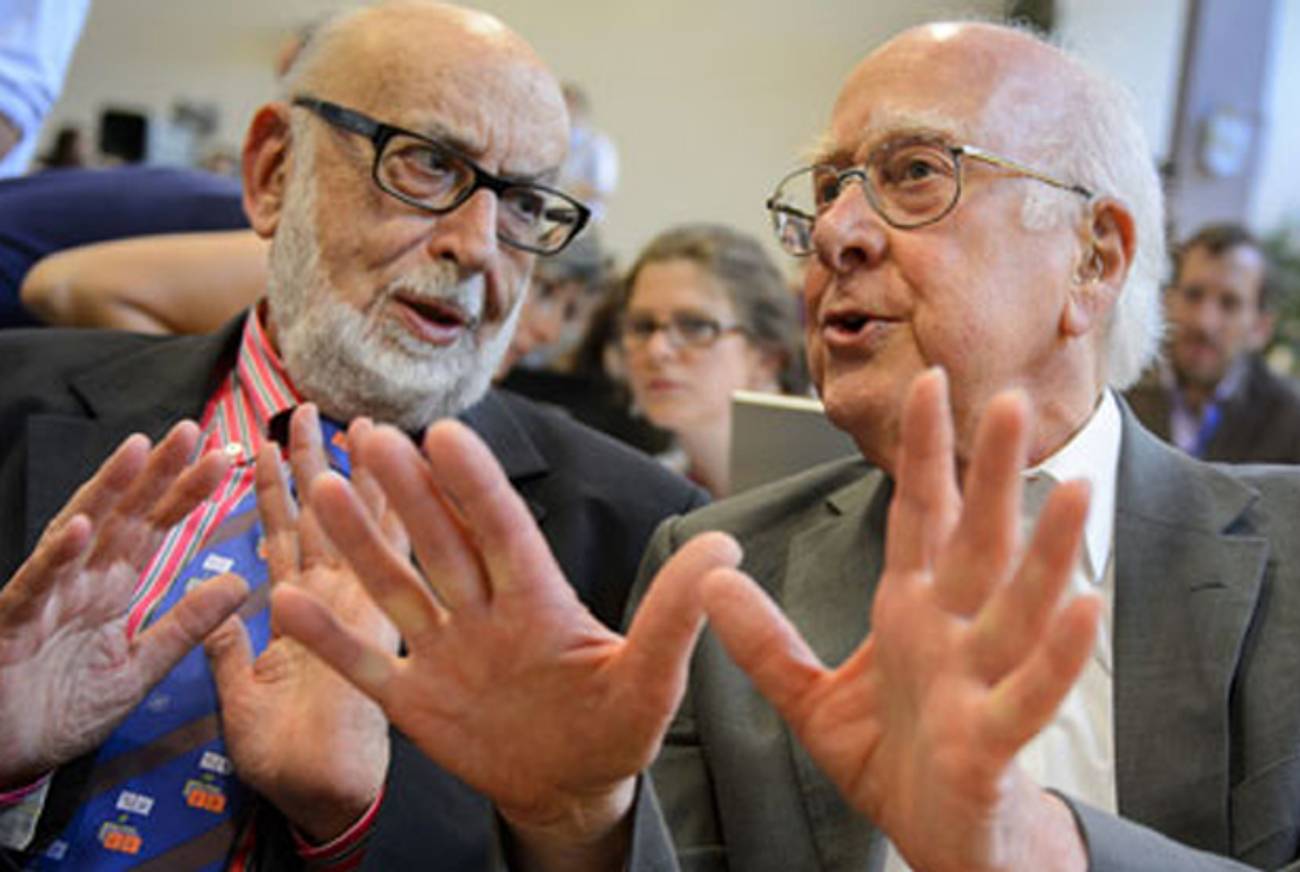Holocaust Survivor Francois Englert Wins Nobel
Shares physics prize with Peter Higgs for the pair’s Higgs particle discovery




This morning the Royal Swedish Academy of Sciences awarded the Nobel Prize in Physics to Peter Higgs and Francois Englert for their theory of how particles acquire mass. The pair’s groundbreaking theory was confirmed by their 2012 discovery of the Higgs particle, more commonly known as the “God particle.” While Higgs may be the particle’s namesake, it is Englert whose background is quite interesting.
The 80-year-old Belgian theoretical physicist was born in Brussels on Jun 11, 1932. Still a child when the Nazis invaded Belgium, Englert survived by concealing his identity and being sheltered in a series of orphanages. After the war he studied in Brussels, training as an electrical-mechanical engineer and receiving his PhD in physical sciences in 1959 from the Université Libre de Bruxelles. He went on to work at Cornell and then returned to Université Libre de Bruxelles to teach, becoming a Sackler professor at Tel Aviv University’s School of Physics and Astronomy in 1984. The team of Englert, Higgs, and Robert Brout (for whom Englert had worked as a research assistant while at Cornell) won Israel’s Wolf Prize in 2004.
Paul Fishbane, professor emeritus of physics at the University of Virginia, explored the significance of the so-called “God particle” last fall—a phrase he described as one that “does not convey much information, but it is a fine way to attract attention”—a discovery that very much propelled the scientific world forward:
The Higgs mechanism also did something else: It put terms into the equations that were identical with terms that corresponded to the various particles having been given individual masses by hand. The mass of an object is a measure of the difficulty of speeding up or slowing down that object: Up until the invention of the Higgs mechanism, mass was just something you had to take as an otherwise unjustified given. With the Higgs mechanism in play, mass has a significance, an origin. Since mass is one of the most fundamental concepts in physical law, the Higgs mechanism, and the Higgs boson associated with this mechanism, becomes a central piece of our picture of the rules.
With their brand new Nobel prize, Higgs and Englert too take on a central piece in the wider sphere of scientific understanding.
USC Shoah Foundation Institute testimony of Francois Englert [USHMM]
Related: Encounters With the God Particle
Stephanie Butnick is chief strategy officer of Tablet Magazine, co-founder of Tablet Studios, and a host of the Unorthodox podcast.